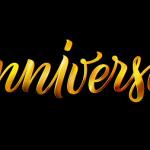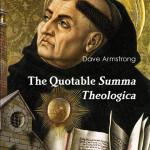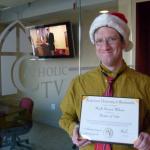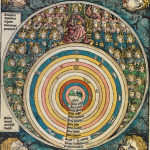
What happened on Saturday was real. Of that event, we can know nothing. We only know about it, but we cannot know it. We can project into the event and try to create “something” (perhaps “something” meaningful, cathartic, or “something” that temporarily cures our boredom), but that “something” is not reality. It is a spectacle.
For those who have known death, real death, they know that it is not spectacular: it is ordinary. Tragedy is not a spectacle; it is a part of real life. We only disfigure tragedy into spectacle as a way to escape the real and make truth into something so extravagantly false, we fall in love with it and desire spectacular things instead of real ones.
The “News” itself tells us about this: what is “News” is sold as spectacular novelty. But those who know of its real origins know that the “News” is not new at all. The “News” is not new, it is complexly distorted into a spectacular thing. It is a thing raped of its reality and replaced with added spectacles of meaning.
As many nice lies that might be said — lies of sympathy and remorse — we all know the basic truth: we love the spectacle. We love these events. We may say that we hate them, but we hate them amorously. We love to hate them. The media loves to feed this to the masses and get rich. And those for whom this fantasy has replaced reality: they will kill anyone who threatens to subvert the spectacle with reality.
What is wrong with this event is that we only believe we can see it — and by thinking we see it, fail to see anything at all — as theater, under the specter of the nation-state: the spectacle of politics.
Regarding politics: political spectacle is status quo. It is the norm, not the exception. Political success is literally tied to being made into a spectacle on television and the rest.
A dose of reality would jolt the social order into the chaos of the real. It is not strange or crazy for strange and crazy things to happen in a culture that fetishes over the spectacle: a culture where real food is the exception; where “reality” is a television genre; where the ordinary is insufficient.
I will not comment on the event, because I do not know it. I only know about it. But I do know that I desire less than the spectacle. I desire the sufficiency of reality, the simplicity of beauty, the ordinary Love that knows how to be excessive and nothing more.
The sign of ideology is the spectacle. The sign of truth is the real. One is an idol, made and loved by a culture that blindly sees it as real, as some new thing: an opportunity for making money, for feeling better about oneself, for justifying our misery. The other is an icon, mysterious and fleeting, and mostly (in)visible to children — the ones who know to not pretend to know what they do not, and cannot, know.
“And so, whoever makes himself as little as this little child is the greatest in the kingdom of Heaven.” (Matt 18:4, NJB)
















